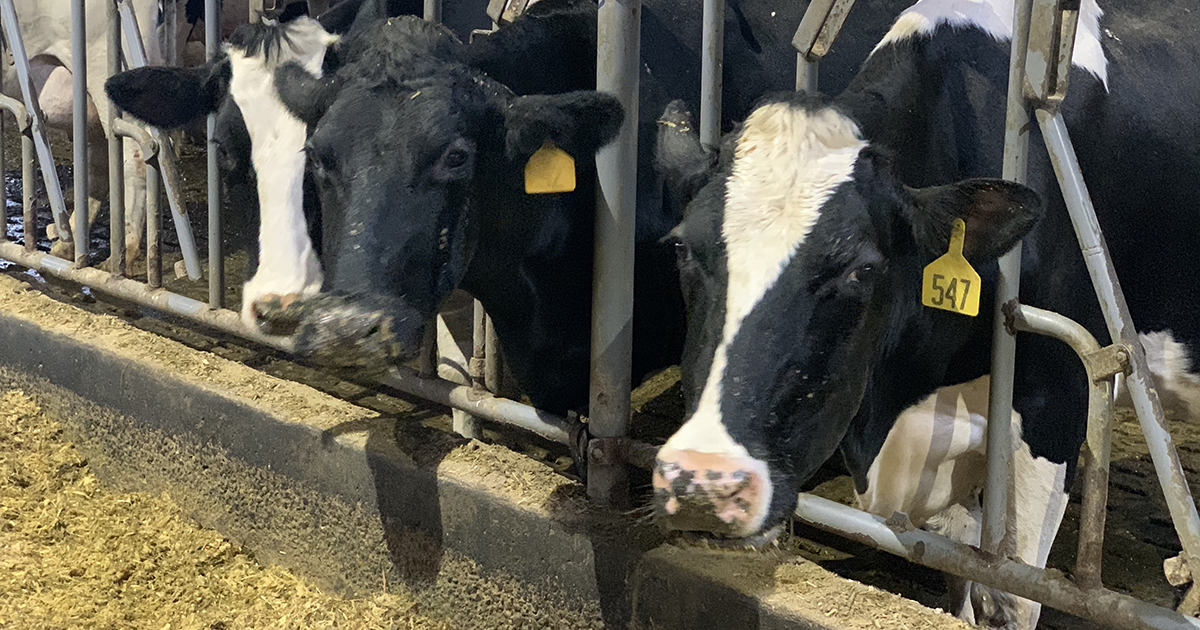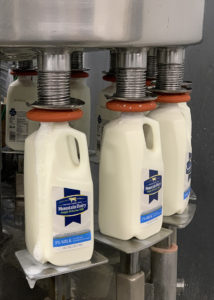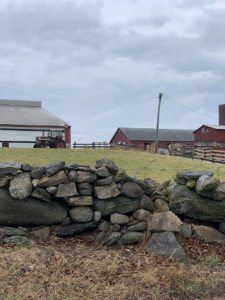How Babson Dining Could Help Save New England’s Dairy Farms

With one simple but grand idea, Babson Dining senior director Geoffrey Searl may have found a way to increase locally sourced food on campus, work with other universities to help bolster a New England dairy farm, and get students and faculty involved in the process.
The catalyst? Cheese pizza.
A Winning Proposal
“We’re always challenged by the Babson community to do more with entrepreneurship, because that’s what Babson’s all about,” Searl said.
With the New England Food Vision Prize—awarded this month to Babson College by the Henry P. Kendall Foundation—Searl discovered an ideal way to do just that.
Thanks to the prize’s $250,000 grant, Babson now will partner with Mountain Dairy to help the dairy farm in Storrs, Connecticut, expand into producing mozzarella cheese.
Searl’s winning proposal—in conjunction with Worcester Polytechnic Institute and Worcester State University—will help Mountain Dairy with the equipment and other infrastructure to make the transition.
Plus, the three colleges have made a commitment to purchase 50,000 pounds of shredded mozzarella cheese annually.
The Hidden Advantages of Making Cheese
Searl initially pitched the idea to Craig Stearns, the president and general manager of Mountain Dairy, which has supplied milk to the College for three years. He thought that mozzarella cheese would be a high-volume, low-cost product that might be easy for a dairy farm to produce.
“We’re selling hundreds of pizzas a week at this location alone,” Searl said recently while sipping iced tea at Roger’s Pub & Grille. “Mozzarella cheese is heavily used in any higher education environment.”
In writing the grant application, Searl and Stearns also uncovered some unexpected advantages with the plan to expand the farm into producing cheese.
One, Mountain Dairy currently has an excess of skim milk (about 15,000 pounds quarterly) that can be redirected into making mozzarella.
Two, whey byproduct from making mozzarella can be used in the cows’ diet, reducing the amount of feed sourced from other locations and aiding the cows’ nutrition.
Three, the new product line has bolstered Mountain Dairy’s decision in the past year to acquire a nearby satellite farm, which otherwise would have been retired, to help increase the herd and the supply of feed.
Blazing a Trail for the Region
“I knew for the health of business that we’d want to do some other products,” said Stearns, who took over last December in running the family-owned business, which has been bottling milk since 1871 and now stretches into the 11th generation.
 “It’s a historic business that’s gone through many cycles as a family business,” he added. “We’re heading in a new direction, and this (prize) … has created a positivity and excitement throughout the family and our employees.”
“It’s a historic business that’s gone through many cycles as a family business,” he added. “We’re heading in a new direction, and this (prize) … has created a positivity and excitement throughout the family and our employees.”
It’s an excitement that also could ripple throughout New England, according to Andrew W. Kendall, the executive director of the Kendall Foundation, whose prize is aimed at accelerating the New England Food Vision—to produce at least 50% of New England’s food locally by 2060.
“We see the prize as an opportunity … to allow the Babson team to work with the dairy to hopefully blaze a new trail for the region,” Kendall said. “There are many, many dairies that need help. If campuses … can create this kind of game-changing relationship with nearby dairies, then it has huge implications.”
The implications for Babson itself, though, go far beyond serving more locally produced food on campus.
‘The Fabric of the Entrepreneurship’
Not only does this partnership increase the amount of locally grown food, but it also provides another equally important opportunity for Babson.
 “It’s really helping build a bridge between dining and faculty and find opportunities with this prize to harness the entrepreneurial spirit of Babson,” Searl said. “My overarching hope … (is) to be part of the fabric of the entrepreneurship that happens on campus.”
“It’s really helping build a bridge between dining and faculty and find opportunities with this prize to harness the entrepreneurial spirit of Babson,” Searl said. “My overarching hope … (is) to be part of the fabric of the entrepreneurship that happens on campus.”
One of the first steps for Searl is connecting with faculty and students to help maximize the opportunity. Searl hopes that Babson students will help write the business plan, visit the Mountain Dairy farm on sustainability field trips, and even learn firsthand from Stearns in classrooms on campus.
“It’s a fabulous case of entrepreneurship,” Kendall said, “because you’re essentially trying to create a whole new business line within an established traditional business activity. … This is something that could impact every single Babson student.”
Stearns already is fast at work in readying his farm for the expansion, and Searl says he hopes to be serving Mountain Dairy’s mozzarella cheese when students return to campus next September.
Posted in Community




